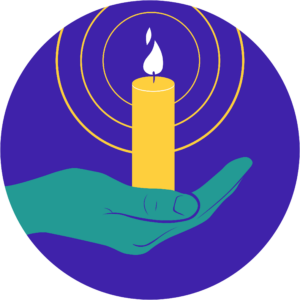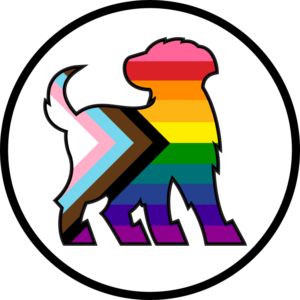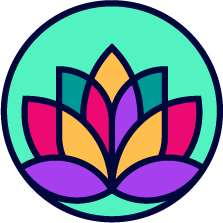Gathering with Gratitudes 
What are you grateful for? A chance to lean into gratitude.
Every Wednesday in the Gathering Space
Join Gathering Space student interns each week as they lead Gathering with Gratitude. Gathering with Gratitude (GG) is a weekly event to journal, reflect and discuss topics relating to thankfulness and gratitude. Gratitude is the process of being thankful and recognizing what we have and where we are in the present moment. Then, to bring kindness into that moment. Each week focuses on a different topic. Practicing gratitude regularly can be healing and meaningful through this act of learning and focusing on what we are grateful for. GG is celebratory and reflective for those within and relating to the UMBC community. Guest speakers from various traditions (including members of the Religious Council) will occasionally be invited to bring their perspectives on gratitude to space. GG meetings are open to all UMBC community members.
Mindfulness Mondays 
A Space to Breath. To Reflect. To Be.
Every Monday in the Gathering Space
Mindfulness is the practice of purposefully bringing one’s attention to the present moment without judgment. Given the daily pressure and stress faced by many, finding the time and different ways to pause and reflect is increasingly important. Join our staff to pause and connect with yourself, others, and the space around you. Each week, participants will have various opportunities to practice mindfulness, including yoga, meditation, and exploring various religious/spiritual approaches to this topic. This is a collaborative series between Initiatives for Identity, Inclusion & Belonging, UMBC Recreation, and the Office of Health Promotions. Mindfulness Mondays are open to all UMBC community members.
QueerCare: LGBTQIA2+ Well-Being Series 
Queercare is well-being series centering LGBTQIA2+ community members building relationships, accessing resources, and engaging in other activities to gain information on practicing radical self-care. This program provides LGBTQIA+ community members the resources to help obtain quality care concerning their social, mental, emotional, spiritual, and physical health.
Retriever Immigrants United (RIU): Immigrant Self-Care and Advocacy Discussion Group 
Originally a social action and service student organization, Retriever Immigrants United (RIU) transitioned to our department. RIU is now a self-care and advocacy discussion-based program that centers on the experiences of UMBC undergraduate students, graduate students, and staff who identify as first, 1.5, second-generation, or children of immigrants regardless of their race, ethnicity, nationality, and/or citizenship status.* This semi-structured, topic-based group discusses the diverse immigrant experience with a focus on the role identity plays on intersectionality, community building, and social justice, while also providing a safe/brave space for UMBC immigrant community members to share their feelings, experiences, and engage in vulnerable dialogue with other community members.
*Please note that this group centers on immigrants and on the immigrant experience. This is subject to change according to attendees and potential future event opportunities and initiatives for allies. For clarification on the language used, please refer to the definitions below:
SistaCare: Black Women and Femmes of Color Discussion Group 
“Caring for myself is not self-indulgence; it is self-preservation, and that is an act of political warfare.”
SistaCare is a self-care and community-building group that centers undergraduate and graduate students who identify as Black/Africana women (e.g., transgender, cisgender) and femmes, regardless of gender expression.* The opening quote, penned by writer Audre Lorde in 1988, illuminates the necessity of Black women to intentionally cultivate, grow, and maintain self-care practices as both a personal and political act. In doing so, we directly challenge systems of oppression that seek to dehumanize and devalue Black Women.
*Please note that this group centers the named population. This will change according to attendees and potential future event opportunities and initiatives. For clarification on the language used, please refer to the definitions below: